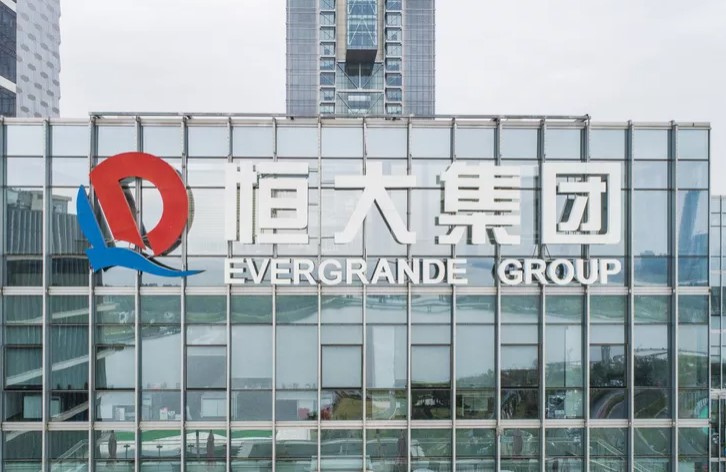Hui Ka Yan, the founder and chairman of China Evergrande Group, has reportedly been placed under police surveillance, casting further uncertainty on the troubled company’s fate as it contends with the increasing risk of liquidation. According to sources familiar with the situation, Hui, who established Evergrande in 1996 in Guangzhou, was detained by authorities earlier this month and is currently under supervision at a specified location.
Evergrande Group’s shares plummeted once more on Wednesday amid increasing concerns about the company’s potential liquidation, marking it as a prominent symbol of China’s property market crisis; the troubled developer’s stock closed at 32 Hong Kong cents (4 US cents), resulting in a market capitalization of merely 4.2 billion Hong Kong dollars ($539 million), and this week’s losses alone accounted for a staggering 42%, with the company having shed 99.9% of its value since its peak in October 2017.
Evergrande holds the distinction of being the most heavily indebted property developer globally, burdened with a staggering sum exceeding $300 billion in total liabilities, and it has found itself at the epicenter of an unparalleled liquidity challenge within China’s real estate sector, constituting approximately a quarter of the nation’s economy.
The company’s troubles escalated this week as it raised concerns about potential obstacles in its offshore debt restructuring due to a regulatory investigation into its main subsidiary in mainland China, with this warning following news of the first criminal probe into Evergrande by Chinese authorities since its debt default nearly two years ago. Although investors found temporary relief last month when Evergrande reported reduced losses for the first half of the year, attributed to increased revenue from a brief surge in China’s property market, the subsequent developments have been consistently unfavorable. Consequently, an increasing number of investors are reportedly considering liquidating the company if it fails to devise a new survival plan promptly.
The reasons behind Hui’s placement under residential surveillance were unclear, and this action represents a police procedure that falls below formal detention or arrest, with no immediate implications of criminal charges against Hui.
According to Reuters, it was unable to promptly confirm the report, and requests for comments from Evergrande, the Guangdong provincial police department (located in Guangzhou), and the Ministry of Public Security remained unanswered.
A source close to Evergrande noted that Hui had ceased communication with the company’s staff in recent days, while an industry insider mentioned that he had become entirely unreachable. Both sources chose to remain anonymous, citing a lack of authorization to speak to the media.
Recent developments surrounding Evergrande include the detention of employees from its wealth management unit earlier this month, signaling further trouble for the once-leading developer, which has been grappling with a financial crisis since 2021, leading to defaults on offshore debt amid a sluggish real estate market and limited fundraising options. The company’s crucial offshore debt restructuring plan appears to be in jeopardy, increasing the likelihood of liquidation.
Furthermore, a major Evergrande offshore creditor group is considering joining a liquidation court petition if the company fails to present a new debt restructuring plan by the end of October, following its inability to issue new bonds due to a regulatory investigation into its main unit, Hengda Real Estate, which, in a separate statement, acknowledged its failure to meet a 4 billion yuan ($547 million) bond payment deadline on September 25.
Evergrande had to call off its planned creditor meetings for this week, partly due to the fact that its recent sales performance fell short of its expectations.
Evergrande’s rapid growth was fueled by an aggressive land acquisition strategy and quick, low-margin apartment sales, which propelled its founder, Hui, to become Asia’s wealthiest individual in 2017, according to Forbes. However, mounting liabilities exceeding $300 billion, a weakening property market, and regulatory crackdowns on high-debt companies placed immense pressure on the company.
As Evergrande’s empire unraveled, scrutiny intensified over its business structure and operations under Hui, driven by the growing challenge of meeting debt obligations and completing apartment construction. A bondholder holding Evergrande’s yuan-denominated bonds in Shanghai noted that Hui’s police surveillance wasn’t surprising given the company’s extensive troubles, shifting attention to the government’s potential rescue efforts and Hui’s personal contributions to creditors.
Meanwhile, investors are closely monitoring issues at another major Chinese developer, Country Garden, which faces a bond coupon repayment deadline for a $1 billion dollar bond due in January, with a $40 million coupon payment due soon.
Country Garden has been working to avoid defaults and is expected to delay the coupon payment, leveraging a grace period to strategize for offshore debt restructuring.
(Source: Laura He | Marc Stewart | CNN | Scott Murdoch | Julie Zhu | Rae Wee | Summer Zhen | Sumeet Chatterjee | Neil Fullick | Muralikumar Anantharaman | Kim Coghill | Reuters)









